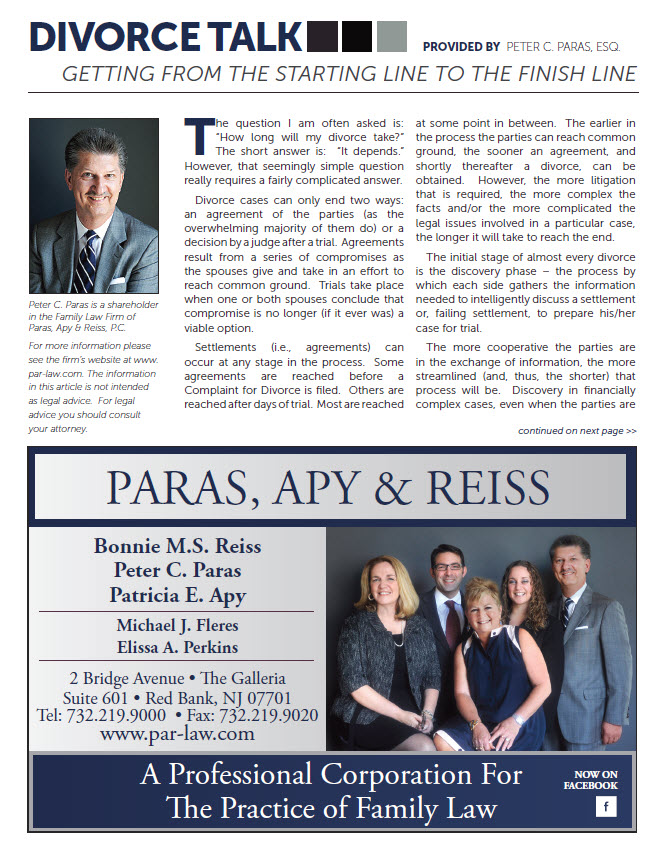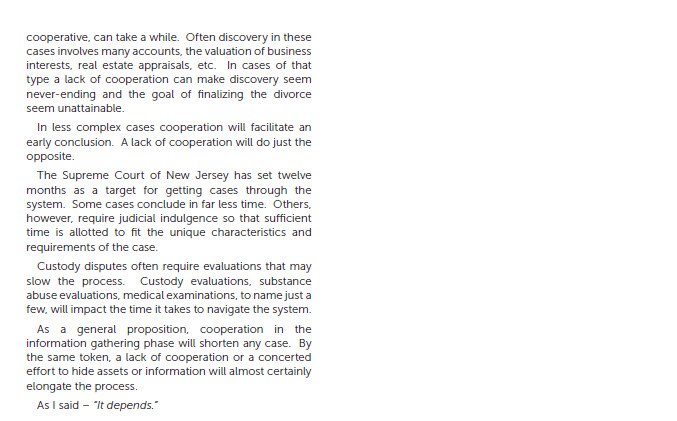The question I am often asked is: “How long will my divorce take?” The short answer is: “It depends.” However, that seemingly simple question really requires a fairly complicated answer.
Divorce cases can only end two ways: an agreement of the parties (as the overwhelming majority of them do) or a decision by a judge after a trial. Agreements result from a series of compromises as the spouses give and take in an effort to reach common ground. Trials take place when one or both spouses conclude that compromise is no longer (if it ever was) a viable option.
Settlements (i.e., agreements) can occur at any stage in the process. Some agreements are reached before a Complaint for Divorce is filed. Others are reached after days of trial. Most are reached at some point in between. The earlier in the process the parties can reach common ground, the sooner an agreement, and shortly thereafter a divorce, can be obtained. However, the more litigation that is required, the more complex the facts and/or the more complicated the legal issues involved in a particular case, the longer it will take to reach the end.
The initial stage of almost every divorce is the discovery phase – the process by which each side gathers the information needed to intelligently discuss a settlement or, failing settlement, to prepare his/her case for trial.
The more cooperative the parties are in the exchange of information, the more streamlined (and, thus, the shorter) that process will be. Discovery in financially complex cases, even when the parties are cooperative, can take a while. Often discovery in these cases involves many accounts, the valuation of business interests, real estate appraisals, etc. In cases of that type a lack of cooperation can make discovery seem never-ending and the goal of finalizing the divorce seem unattainable.
In less complex cases cooperation will facilitate an early conclusion. A lack of cooperation will do just the opposite.
The Supreme Court of New Jersey has set twelve months as a target for getting cases through the system. Some cases conclude in far less time. Others, however, require judicial indulgence so that sufficient time is allotted to fit the unique characteristics and requirements of the case.
Custody disputes often require evaluations that may slow the process. Custody evaluations, substance abuse evaluations, medical examinations, to name just a few, will impact the time it takes to navigate the system.
As a general proposition, cooperation in the information gathering phase will shorten any case. By the same token, a lack of cooperation or a concerted effort to hide assets or information will almost certainly elongate the process. As I said – “It depends.”


